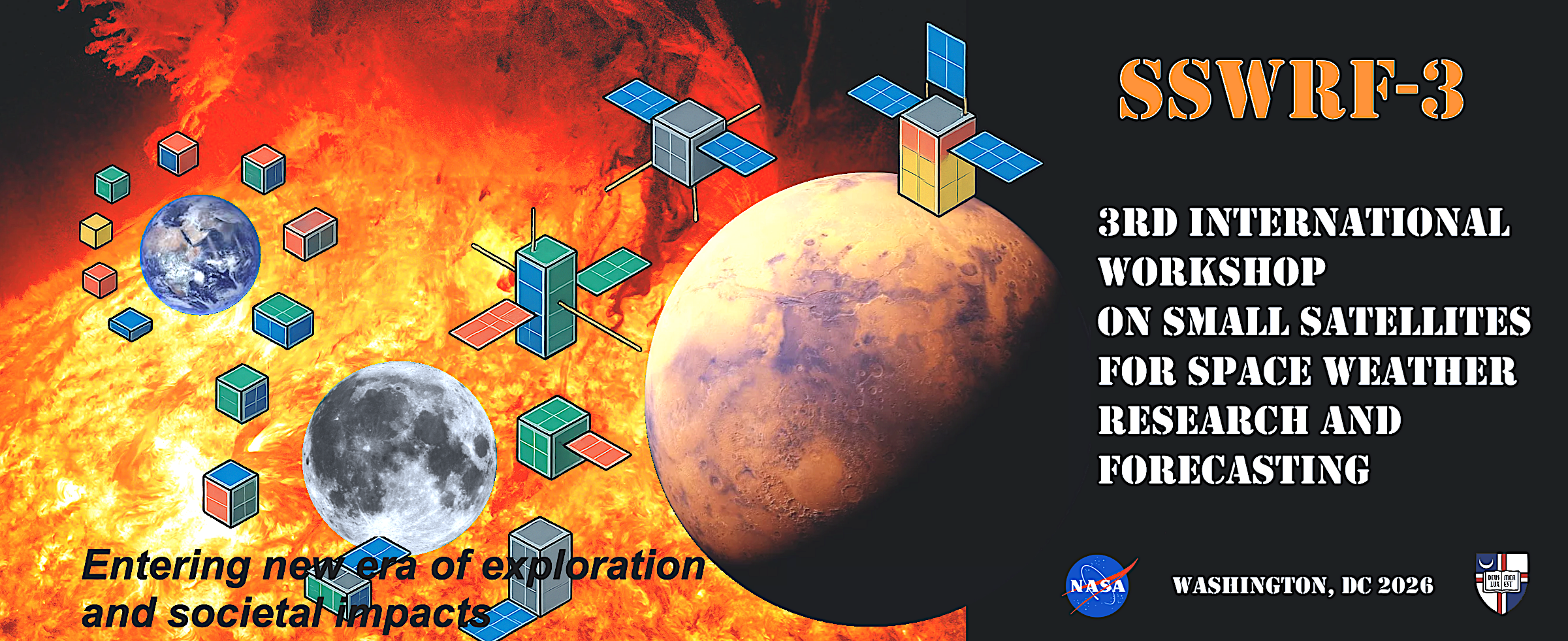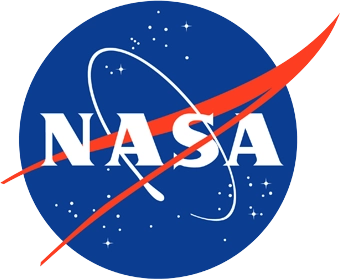
SSWRF-3: Entering new era of exploration and societal impacts
Small Satellites for Space Weather Research and Forecasting
Catholic University of America
Washington, DC, 18-22 May 2026
Overview
Detrimental space weather phenomena—such as geomagnetic and ionospheric storms, increased fluxes of charged particle radiation, and heightened atmospheric drag due to solar activity—pose an escalating threat to both space-based and terrestrial infrastructure, as well as to Moon to Mars exploration activities.
The First and the Second Small Satellites for Space Weather Research and Forecasting (SSWRF) workshops held respectively in Washington, DC (2017) and Laurel, MD (2022) addressing the unique opportunities and requirements of using small satellite platforms for space weather research.
The new international SSWRF workshop will be held in Washington, DC, 18-22 May 2026, at the Catholic University of America. The workshop welcomed a wide range of contributions related to the use of small satellites—including CubeSats—for space weather monitoring, research, data analysis, forecasting, and operational support.
SSWRF-3 will expand the scope of the previous two workshops to meet the current priorities of space science exploration by welcoming contributions on space weather applications of artificial intelligence and physics-informed machine learning tools, the efficiency aspects of space monitoring by small-size platforms, interplanetary space weather analysis supporting Moon to Mars initiatives, and other ongoing priorities.
Workshop Themes
Key topics and areas of focus for the SSWRF-3 workshop:
Small satellite observations relevant to space weather of interplanetary, solar, and geospace phenomena, including:
- Space weather observations in support of human exploration of the Moon and Mars
- Space weather observations to characterize LEO orbital drag conditions
- Space weather observations to characterize ionospheric conditions impacting GNSS and communication
- Small satellite constellations for monitoring large spatial domains
- Physics-informed ML and AI tools in support of small satellite missions
- Investigations of space weather effects on small satellites: degraded capabilities, situational awareness, and satellite-debris collisions
- Using small satellite data in global space weather simulation and forecasting frameworks
- International coordination of small satellite activities
Scientific Organizing Committee
As of 09/26/2025
- Georgia de Nolfo (georgia.a.denolfo at nasa .gov), NASA Goddard Space Flight Center
- Amir Caspi (amir at boulder.swri .edu), Southwest Research Institute, Boulder
- Teresa Nieves-Chinchilla (teresa.nieves at nasa .gov), NASA Goddard Space Flight Center
- Michelangelo Romano (michelangelo.romano at nasa .gov), NASA Goddard Space Flight Center
- Benjamin Cervantes (benjamin.w.cervantes at nasa .gov) (georgia.a.denolfo at nasa .gov), NASA Goddard Space Flight Center
- James Spann (james.spann at noaa .gov), NOAA NESDIS
- Antti Pulkkinen (antti.a.pulkkinen at nasa .gov), NASA Goddard Space Flight Center
- Vadim Uritsky (vadim.urisky at nasa .gov), CUA at NASA Goddard Space Flight Center
- Alex Young (c.alex.young at nasa .gov), NASA Goddard Space Flight Center
Important Information
Workshop Location
Catholic University of America, Washington, DC
Workshop Date
18-22 May 2026
